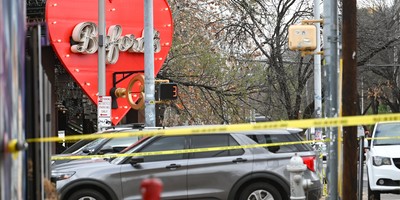We find ourselves at a fascinating—and perhaps terrifying, moment in history in which so much of the past seems irrelevant to answering the questions about our future. How to define misinformation from information. How to allocate accountability for guarding against harmful materials. How to balance individual freedom with responsibility. How to safeguard and promote the creation of original materials in an environment celebrated for disruption and the idea it’s better to ask for forgiveness than permission.
It is no fluke that it is within this broader set of entanglements that the Supreme Court is set to take up arguments in the case of Google v. Oracle. While the case doesn’t address all of those questions, they do inform the cultural and legal landscape in which the case will be heard, and underscore the importance of the decision that will ultimately be announced. And hopefully, the Supreme Court will articulate a vision that helps us to address broader questions—that the past may in fact help us to understand how to shape our future, and that novelty can sometimes cloud our vision about the application of moral judgments that are unchanged by time.
The facts are not in dispute. Java (developed by Sun which was later acquired by Oracle) created a state of the art platform that is broadly licensed to all parties, including potential competitors. In a rush to get to market, Google copied over 11,000 lines of code to short circuit the process of creating its own platform.
Google acknowledges the copying. It makes two principal defenses: (1) the code was not protected by copyright including because the expression merged with the idea, and ideas are not copyrightable; or (2) even if it is protected, Google’s copying is excused as fair use. This is a case about the commercial appropriation of the work of another party. That is undisputed. The only question is whether it represents misappropriation, the answer to which is rooted in a determination of values as expressed by law. And the answer to that, while argued, is frankly indisputable—an observation that will be clear to anyone that reads the Oracle brief. The Oracle brief is astoundingly readable and accessible to non-lawyers, and reflects the fact that law, broadly speaking, should not be left uniquely to lawyers given its impact on society writ-large since it defines how we govern ourselves. Law is not fixed, and both reflects and shapes our values.
Recommended
The sad reality is that this case is yet another manifestation of Google’s willingness to engage in unfair practices and its distaste for asking for permission to use someone else’s property. That’s as close to an original governing code as they get. They champion efficient infringement in a desire to enter and dominate markets, and make ex post facto arguments to try to justify their practices as essential for freedom and innovation, all the while ignoring the freedom to innovate that takes place within a licensing environment. Let’s hope that the Supreme Court sees through the deception. Not for Oracle’s sake, but for ours. There are moments to stand up against bullies. This is such a moment.
Neil Turkewitz is President at Turkewitz Consulting Group. A copyright activist and member of the Artist Rights Alliance, he served as EVP International at the Recording Industry Association of America (RIAA) was Vice-Chairman, Industry Trade Advisory Committee, and a former member of the Board of the Chamber of Commerce’s Global Intellectual Property Center.

























Join the conversation as a VIP Member